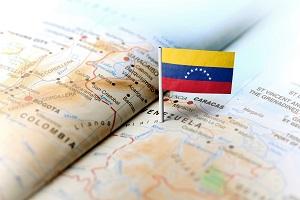
On 18 February 2020 the U.S. Department of the Treasury’s Office of Foreign Assets Control (OFAC) designated Rosneft Trading S.A. for operating in the oil sector of the Venezuelan economy in breach of provisions of Executive Order 13850. Rosneft Trading S.A. is identified as being a Swiss-incorporated, Russian-controlled oil brokerage firm. OFAC also designated the chairman of the board of directors and president of Rosneft Trading S.A., Didier Casimiro, for purporting to act for or on behalf of, directly or indirectly, Rosneft Trading S.A. In a set of associated FAQs, OFAC confirms that:
“… the blocking sanctions apply only to Rosneft Trading S.A., or any entity in which it owns, directly or indirectly, a 50 percent or greater interest. Blocking sanctions do not apply to this entity’s ultimate parent, Open Joint-Stock Company Rosneft Oil Company (Rosneft Oil Company). Similarly, blocking sanctions do not apply to Rosneft Oil Company or other subsidiaries or affiliates, provided that such entities are not owned 50 percent or more in the aggregate by one or more blocked persons or otherwise explicitly designated or identified by OFAC.”
Concurrently OFAC has issued a general license, GL 36, authorising US persons to conduct activities otherwise prohibited by E.O. 13850 that are necessary for the wind down of transactions involving Rosneft Trading S.A., or any entity in which Rosneft Trading S.A. owns, directly or indirectly, a 50 percent or greater interest. The license will expire at 12:01 a.m. Eastern Daylight Time on 20 May 2020. After the expiration of the license, unless exempt or authorized by OFAC, US persons will be prohibited from engaging in transactions with Rosneft Trading S.A., or any entity in which Rosneft Trading S.A. owns, directly or indirectly, a 50 percent or greater interest. As far as non-US persons are concerned, OFAC has clarified that non-US persons may wind down transactions with Rosneft Trading S.A. without exposure to sanctions under E.O. 13850, provided that such wind-down activity is: (i) consistent with General License 36; and (ii) completed prior to 12:01 a.m. eastern daylight time, May 20, 2020.
US Law Firm Freehill Hogan & Mahar has produced a Client Alert expanding on the implications of these designations for non-US shipowners. Of particular note is the implication that the U.S. Government appears willing to use the “operating in the oil sector” provisions in E.O 13850 to sanction non-US persons engaging in activities involving Venezuela’s oil sector. In addition, it is also suggested that the U.S. Government views the “material assistance” provision in E.O. 13850 as applicable to non-U.S. persons engaging in activities with those designated under EO 13850. It therefore appears that the US Government will use E.O. 13850 as a basis for imposing sanctions against non-U.S. persons. A U.S. Treasury press release issued on 18 February 2020 identifies some of the activities for which Rosneft Trading has been sanctioned:
- In January 2020, Rosneft Trading S.A. facilitated, on behalf of PdVSA, a shipment of two million barrels of Merey-16 crude oil from Venezuela to West Africa.
- In the fall of 2019, PdVSA planned oil shipments with Rosneft Trading S.A. involving 55 million barrels of crude oil liftings from September to December 2019.
- In September 2019, PdVSA supplied a shipment of one million barrels of Merey-16 to Rosneft Trading S.A., which was loaded on a vessel in Venezuela and destined for Asia.
- In August 2019, Rosneft Trading S.A. negotiated a shipment of two million barrels of Venezuelan crude oil with PdVSA and was able to find a vessel willing to transport the cargo despite difficulties that came with doing business in Venezuela.
Previously designations of non-U.S. persons under EO 13850 had been for carriage of cargoes from Venezuela to Cuba. It is now evident that the U.S. Government is willing to apply the sanctioning powers under EO 13850 more widely.
We are grateful to Freehill Hogan & Mahar for giving permission to include a link to their client alert in this article.

